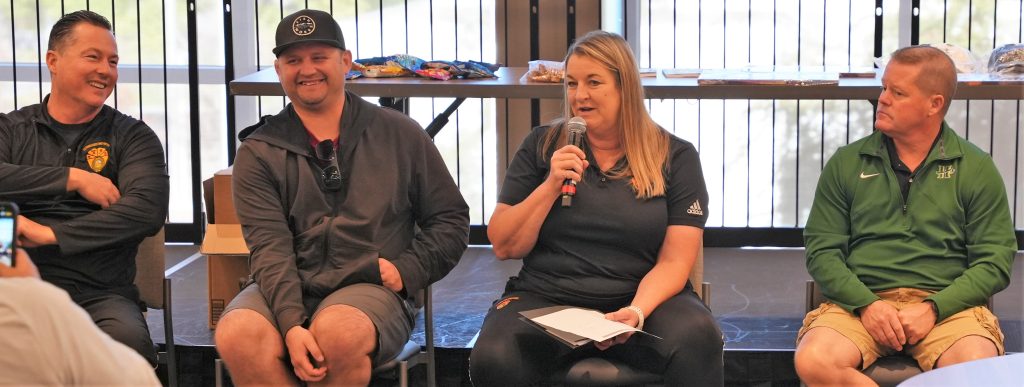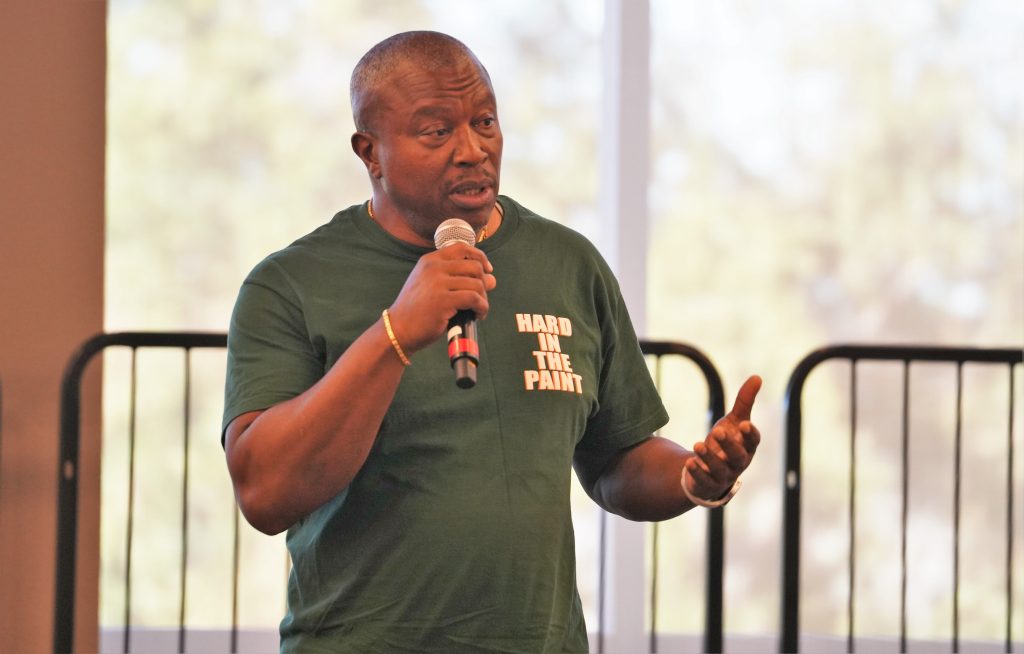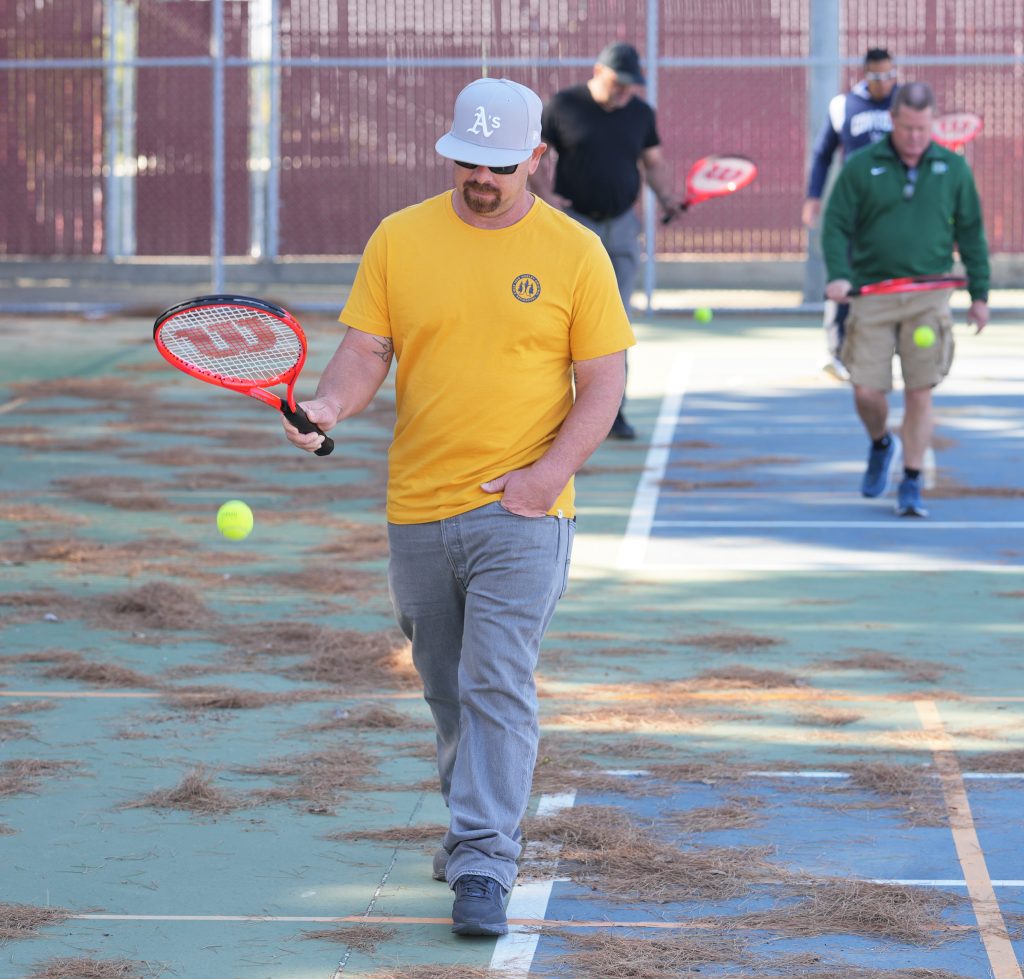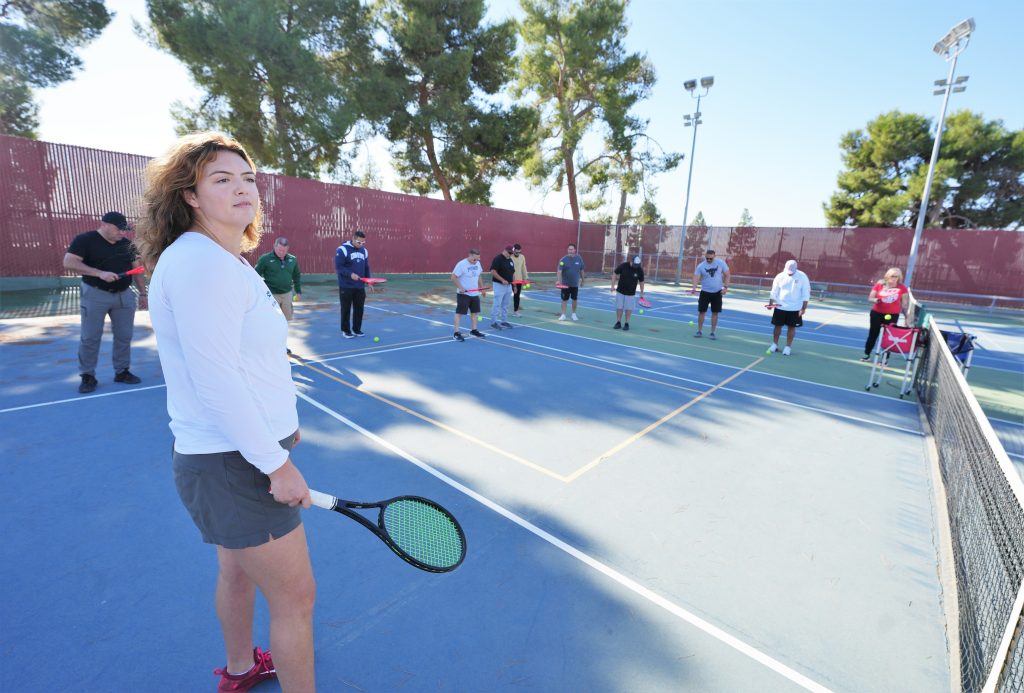CDCR’s Correctional Coaches collaborated with the Bakersfield College Rising Scholars program for their annual three-day professional development. This allowed for hands-on physical activities as well as stakeholder involvement.
The coaches plan to use this professional development to mentor and inspire others who provide leadership within the prisons.
The Correctional Coaches have redefined their roles within the institutions, expanding the responsibilities of volunteers. Inspired by the San Quention Athletic Programs, the Coaches Leadership Committee has worked to provide meaningful training events directly related to their day-to-day duties.
Programs learned during these training sessions, and later implemented at the institutions, are in the spirit of the California Model.
Members of the committee include:
- Alicia Legarda, Office of Correctional Education Administrator
- Stacey Hoffman, Kern Valley State Prison Principal
- Forest Hauck, Centinela State Prison Assistant Principal
- Dave Gambill, California Correctional Institute Coach
- Heidi Wippel, California State Prison, Corcoran
- Andy Scholl, Mule Creek State Prison Coach
- Penny Thiels, High Desert State Prison Coach
- Giancarlo Martinelli, Central California Women’s Facility Coach
- and Bryan Eskew, Avenal State Prison Coach.
This team has been serving the coaches statewide by meeting once a month, using their correctional and recreational experience to share best practices.
Most of the coaches work at correctional facilities, providing recreational needs for the incarcerated population.
Correctional Coaches at a glance

Coaches have unique positions where they have a variety of duties that combine the need to have subject matter expertise in both physical education and recreational knowledge, but also correctional awareness to work on the prison yards, gyms, and dayrooms directly with the population.
All coaches are required to have a Physical Education Teaching Credential issued by the California Commission on Teacher Credentialing. Also, coaches work under the supervision of their institution’s principal.
Correctional coach duties include:
- procure and process institutional movies
- procure, receive, distribute, install and repair recreation equipment
- train and mentor recreation clerks and coordinators
- establish recreational tournaments and lead operations of all sporting events
- meet regularly with men’s/women’s advisory councils to address needs and concerns
- provide training on rules and best practices for all sport units
- facilitate physical activities such as yoga and fitness
- provide special events through outside community volunteer programs
- work collaboratively with the institution’s Americans with Disabilities Act (ADA) Office, Facility Captains, Associate Wardens, Chief Deputy Warden, and Warden
- work closely with their Television Specialist to create content for recreation
- work directly with Gym Officers, Yard Officers, Sergeants, and Lieutenants to facilitate activities
- collaborate with Mental Health Staff to provide recreation
- attend annual conferences for physical education best practices including the California Association for Health, Physical Education, Recreation and Dance
- and work with community partners such universities and community colleges.
Between the Lines and other organizations
This year’s event was created to involve outside agencies such Cal South Soccer, US Tennis Association, Between the Lines Prison Basketball Program, Mastery Prison Home Run Ministries, Fresno State Recreation Administration Professional Dr. Brandon Taylor, and the Bakersfield College Rising Scholars Program.
(Read previous stories on Between the Lines at Folsom and Substance Abuse Treatment Facility.)
Paroled person speaks about importance of coaches, sports

The highlight of the event was a special appearance from formerly incarcerated person Aaron “Showtime” Taylor, who recently paroled after more than two decades behind bars.
Taylor was featured in an Inside CDCR article highlighting his story of redemption and his transition back to the community.
Read the story: Aaron ‘Showtime’ Taylor is changing his life one game at a time – (ca.gov).
Aaron shared his story with a strong message that sports and recreation matter behind bars and the role the coaches play is a significant piece of the rehabilitative puzzle.
Story by Heidi Wippel, California State Prison, Corcoran
Photos by Rick Scott, TV Specialist, Wasco State Prison-Reception Center



Learn more about the California Model on the CDCR website.
Follow CDCR on YouTube, Facebook, X (formerly Twitter). Listen to the CDCR Unlocked podcast.